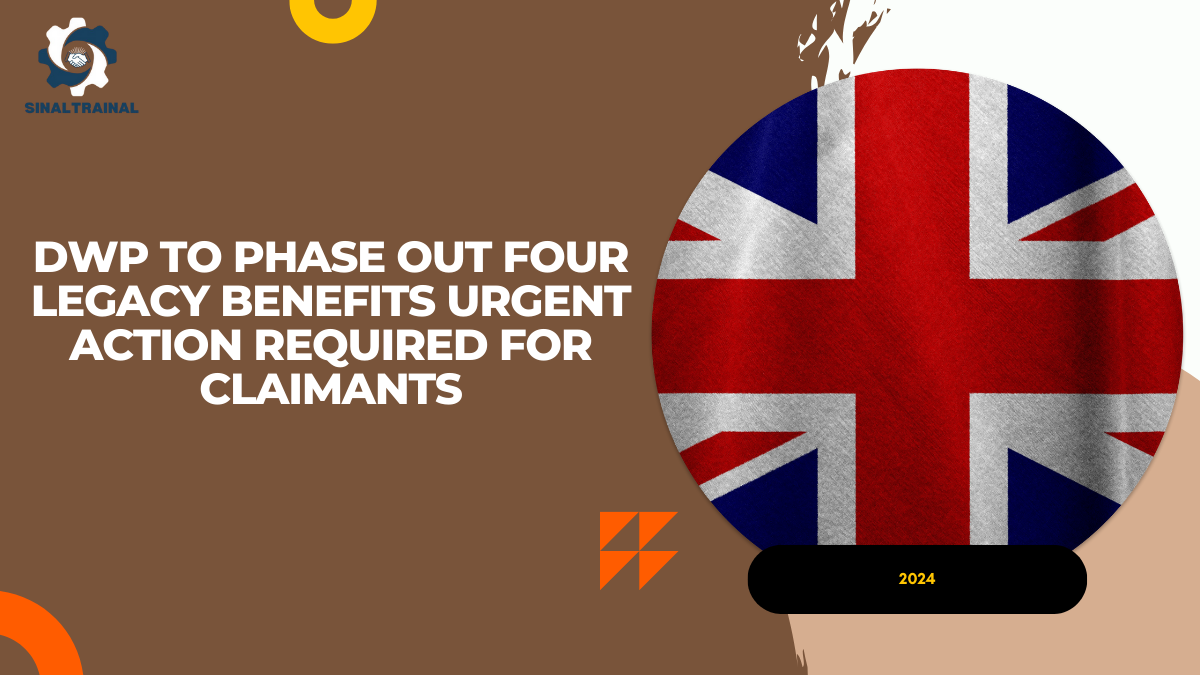The UK’s Department for Work and Pensions (DWP) is undergoing major changes to its welfare system. It plans to phase out four traditional benefits by the end of the 2024-25 financial year. This will affect recipients of Working Tax Credit, Child Tax Credit, Jobseeker’s Allowance, and Income Support, as they will transition to Universal Credit.
This action is a component of a broader plan to streamline the benefits system, aiming to make it simpler for both administrators and claimants to understand. The DWP intends to cut costs, decrease administrative complexity, and provide a more efficient service for everyone by consolidating these various benefits into a unified system.

DWP to Phase Out Four Legacy Benefits
The DWP has confirmed that four legacy benefits are set to be discontinued:
- Income Support
- Working Tax Credit
- Jobseeker’s Allowance
- Child Tax Credit
The Universal Credit system will integrate these benefits, streamlining all welfare payments into one program. This is anticipated to enhance the system’s efficiency, minimize redundancy, and reduce errors.
Why Are These Traditional Benefits Being Scrapped?
The DWP’s decision to scrap these older benefits and move to Universal Credit is driven by several key objectives:
- Simplification: The combination of multiple benefits into one in Universal Credit reduces the complexity for both the claimants and those who manage the system.
- Cost-Effectiveness: Consolidating these advantages reduces administrative expenses and optimizes resource utilization, enabling the DWP to allocate funds more efficiently.iently.
- Quicker Adjustments: Universal Credit can adapt swiftly to changes in an individual’s financial circumstances. In cases where a claimant’s income varies, Universal Credit makes rapid adjustments to offer more precise and immediate assistance.
- Fraud and Error Reduction: By managing fewer systems, the likelihood of errors or fraudulent claims going unnoticed is decreased, which guarantees that financial aid is received by those who genuinely require it.
- Work Incentives: Universal Credit aims to promote employment by gradually reducing the benefit as claimants begin working, thereby increasing the financial incentive for individuals to pursue employment opportunities.
- Adaptability: The modern employment patterns are better accommodated by the new system, including part-time or freelance work, while the traditional benefits system was inflexible and did not consider the dynamic nature of today’s workforce.
This reform aims to modernize the UK’s welfare system, making it more efficient, flexible, and better equipped to support the changing needs of the population.
Breakdown of the Transition Process
The following table outlines the timeline for the transition of each benefit into Universal Credit:
BenefitDescriptionTransition Date
Working Tax Credit Support for employees earning lower wages By May 2024
Child Tax Credit Assistanc for families with kids who rely on them By May 2024
Jobseeker’s Allowance Assistance for people who are unemployed and seeking work September 2024
Income Support Support for individuals with low income, caregivers, and single parents to receive financial assistance. April 2024
The table shows that by the middle of 2024, most claimants of the traditional benefits will have transitioned to Universal Credit.
Timeline and Notifications for Claimants
To ensure a smooth transition, the DWP has created a structured timeline for notifying claimants about the upcoming changes. Here’s how the notification process will unfold:
MonthGroup NotifiedDetails
April 2024 Transition to Universal Credit from initial notifications for Income Support and Tax Credits with Housing Benefit
June 2024 Claimants who receive only Housing Benefit Notices for further action sent
July 2024 Claimants receiving ESA with Child Tax Credits will receive notifications about their combined benefits.
September 2024 Claimants of Jobseeker’s Allowance The final round of notifications
August 2024 Recipients of tax credits who are above the State Pension age. Special instructions for older claimants
It’s important for claimants to take action as soon as they receive these notices to make sure that their switch to Universal Credit goes smoothly and to prevent any interruptions to their financial support.
Financial Adjustments for Claimants
Sure, here is the reworded text:
“HMRC has already adjusted the payment levels for tax credits in anticipation of the upcoming changes, as the transition to Universal Credit nears completion. Below are the revised details of the changes made to Working Tax Credit and Child Tax Credit.”
Working Tax Credit Adjustments
Element2023 Amount (£)2024 Adjusted Amount (£)
Basic Element 2,280 2,435
Couple and Lone Parent 2,340 2,500
Disabled Worker 3,685 3,935
Severe Disability 1,595 1,705
Child Tax Credit Adjustments
Element2023 Amount (£)2024 Adjusted Amount (£)
Family Element 545 545 (unchanged)
Child Element 3,235 3,455
Disabled Child Rate 3,905 4,170
Severely Disabled Child 1,575 1,680
These updates represent the final adjustments to tax credits before the complete transition to Universal Credit. After this, all claimants will receive their benefits through the new system.
Implications and What to Expect
The transition from conventional benefits to Universal Credit is a significant transformation in the UK’s welfare system. The DWP anticipates that this shift will result in improved handling of benefit payments, decreased administrative expenses, and reduced errors.
The current beneficiaries also have a responsibility to stay updated about the changes. It is important for them to keep track of their situation and take action on DWP notifications to guarantee the uninterrupted continuation of their benefits.
What Claimants Should Do
- Stay informed: Make sure to watch for any communications from the DWP regarding the migration process. Be prompt in your response to any correspondence to guarantee a smooth transition of your benefits.
- Seek help if needed: If you have any doubts about any part of the change, get in touch with local support services or seek advice from the DWP.
The government’s goal is to simplify the welfare system and ensure ongoing assistance for those in need. As we approach the 2024-25 fiscal year, it’s essential for all parties involved—beneficiaries, advisors, and the DWP—to work together and enable a smooth transition to Universal Credit. This proactive approach will minimize the potential for disruptions in financial support, especially for the most vulnerable individuals.
Click here to know more.